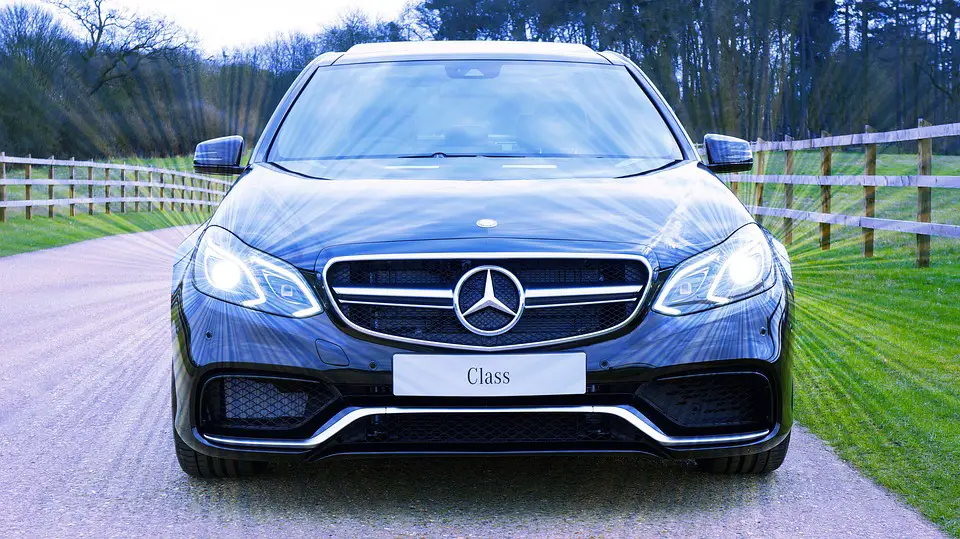Our economy has been in a strange limbo where things are hard to afford while being more readily available than ever before. There are many things to consider when you’re in the market for a new car. You want to find the right vehicle, but you must also consider when interest rates will go down.

There are a few key things to keep in mind when you’re car shopping:
1. Budget
It’s essential to have a budget before starting shopping, and this will help you narrow down your options and avoid overspending. When determining your budget, you should consider how much you’ll spend monthly on things beyond the car payment. Remember to factor in insurance, fuel, toll fees, parking passes, and routine maintenance costs.
Additionally, it’s harder for salespeople to push you into an unwise purchase when you have a budget and know what you’re able and willing to compromise on. Finance companies can approve you for more than you can afford because they don’t consider other costs.
2. Get Pre-Approved for Financing
If you’re planning to finance your new car, getting pre-approved for a loan is a good idea before heading to the dealership. This will give you a better idea of how much you can afford to spend on a car and what kind of interest rate you’ll be paying. It’s also helpful to have this information when negotiating with the dealer. Shop around for the lowest interest rates by checking with your usual financial institute as well as the lender the car dealership offers.
Your bank or credit union will have more information about your financial health than a random lender, and you may have better luck with approval and rates with a local bank instead of a national bank. Further, banks and credit unions have rewards and benefits of financing with them that are specific to their company.
3. Do Your Research
When you know what type of vehicle you’re looking for, it’s time to start doing your research. Not all cars are created equal, and you want to find the one that will best serve your needs. Consider things like make, model, size, fuel efficiency, safety features, and available technology. Once you have a few options, you can start reading reviews to better understand each car. This will help you make an informed decision about which vehicle is right for you.
- Top 5 Best Cordless Impact Wrench For Changing Tires
- Top 5 Best Jump Starters for Cars
- Top 5 Best Battery for Jeep Wrangler
4. Needs vs. Wants
What do you need the car for? Will you be using it for commuting, road trips, or off-roading? Consider your needs when choosing a car. Consider what aspects you’d be willing to compromise or cut costs on. Think about the needed features; the vehicle must have them to work for your family. Then consider the features that would be nice to have but aren’t required.
Another thing to consider regarding needs and wants in a car is whether you need a new car or a new to you car. Purchasing a used car in good condition will save you a lot. Finding a used car that fits the average budget is significantly easier than finding the perfect brand-new vehicle.
5. Interest Rates
Keep an eye on interest rates, which can affect your monthly payments. Sometimes, you can’t time your car purchase to coincide with a low-interest rate. If you’re lucky enough to have good credit and find a decent interest rate, jump on the opportunity if you can.
Today, we see interest rates at their highest point since 2019. And we’ve seen four quarters of consecutive rate hikes. This allows you to budget appropriately. If you finance now, you lock in a guaranteed rate and refinance later when rates reduce.
Many top economists theorize that the economic turbulence is started to stabilize and that by the end of 2022, the inflation levels will be closer to the 2% goal than at any time during the pandemic years. With this prediction, it stands to reason that the interest rates will begin to drop in early 2023 and level out in later 2023.
6. Warranties and Service Plans
Some cars come with warranties or service plans that can save you money down the road. Ask about these when you’re shopping around. Carefully read the fine print of the warranty, and determine if the plan you are being offered is worth the cost. Some plans sound good, but the kinds of damages and repairs they handle aren’t the kind you’re likely to encounter.
Something you may want to consider in your budgeting for your warranties or service plans is whether they’re a monthly payment or if they’re included in your car payment. This will determine if the extended warranty cost is charged with or without interest.
7. Investing in Your Car
Maintaining the quality of operation of your car through routine maintenance and keeping the cosmetic integrity of your care is one of the best things you can do to protect your investment. If, in a few years, when the interest rate decreases, you decide to sell your car and invest in a new ride, you will receive a better trade-in value than if you run the car into the ground and neglect its maintenance needs.
Taking care of your car will also spend less on repairs down the road. Routine maintenance will prevent most issues and catch minor problems before they become big ones. Good upkeep can also contribute to better fuel efficiency and lower insurance rates.
Some carmakers have begun to offer subscription services that will allow you to make a single monthly payment that will cover all of your vehicle’s maintenance needs, including oil changes, tire rotation, and roadside assistance. This can be a good option if you don’t have the time or knowledge to take care of your car’s maintenance on your own.
Buying a Car is Multifaceted – Consider All Factors
There are a lot of things to consider when buying a new car. You can make an informed decision that will save you money in the long run by taking the time to think about your needs and wants. If you’re considering financing, keep an eye on interest rates so you can budget appropriately. And finally, don’t forget to factor in the cost of warranties and service plans when making your decision.









